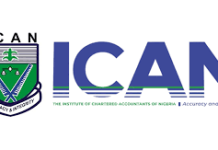The Federal Government spends ₦8.94 trillion on debt servicing from January to September 2024, accounting for 47% of total government expenditure during this period. This reflects a 56.8% rise compared to the ₦5.69 trillion spent during the same period in 2023, according to data from the Central Bank of Nigeria (CBN).
Debt-to-Revenue Pressure Mounts
The debt-to-revenue ratio reaches 147% in 2024, rising from 132% recorded in 2023. Debt servicing outpaces retained revenue of ₦6.08 trillion, highlighting the government’s increasing reliance on borrowing for operations and existing debt repayments.
Breakdown of Government Expenditure
Recurrent spending increases by 45.6% to ₦15.11 trillion, driven by growth in personnel costs, overhead expenses, and transfer payments. Key spending components include:
- Personnel costs rising by 20% to ₦3.59 trillion
- Overhead expenses increasing by 51.4% to ₦892.85 billion
- Transfer payments more than doubling to ₦1.31 trillion
Meanwhile, pensions and gratuities slightly decline to ₦336.61 billion.
Capital expenditure sees a 20.8% increase to ₦3.86 trillion, though the rise remains modest compared to recurrent spending.
Deficit Widening Continues
The fiscal deficit grows by 39.3%, reaching ₦12.89 trillion in the first nine months of 2024, up from ₦9.25 trillion in 2023. Escalating debt servicing costs and widening expenditure gaps further strain government finances.
Calls for Fiscal Reform
Despite recent statements by President Bola Tinubu that debt service-to-revenue ratios have been reduced to 68%, CBN reports indicate a worsening fiscal situation. Experts stress the need for strategic reforms, urging the government to restructure debt obligations and consider asset sales to ease the financial burden.
Analysts caution that Nigeria’s debt servicing costs now overshadow critical investments in defence, health, education, and infrastructure, threatening long-term fiscal stability without urgent intervention.













